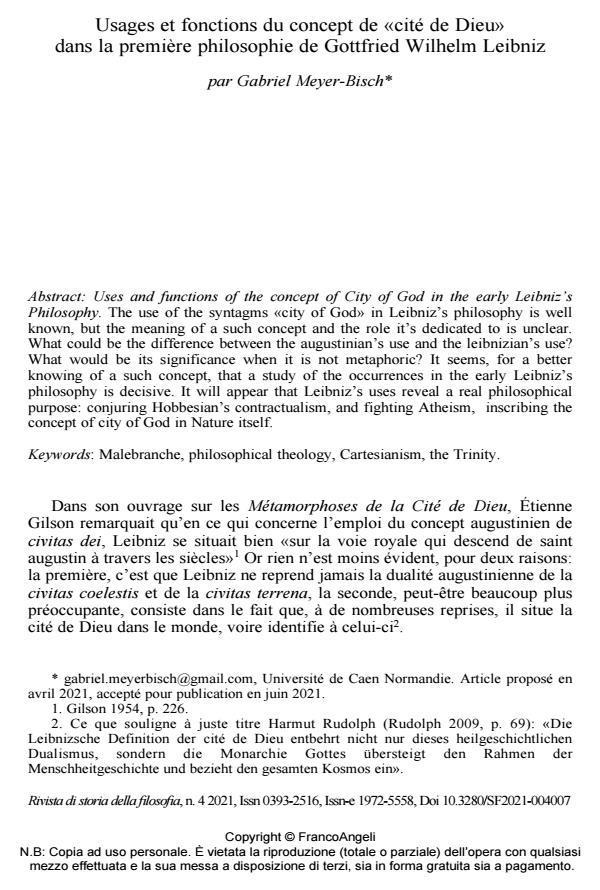Uses and functions of the concept of City of God in the early Leibniz’s Philosophy.
Journal title RIVISTA DI STORIA DELLA FILOSOFIA
Author/s Gabriel Meyer-Bisch
Publishing Year 2021 Issue 2021/4
Language French Pages 17 P. 743-759 File size 231 KB
DOI 10.3280/SF2021-004007
DOI is like a bar code for intellectual property: to have more infomation
click here
Below, you can see the article first page
If you want to buy this article in PDF format, you can do it, following the instructions to buy download credits

FrancoAngeli is member of Publishers International Linking Association, Inc (PILA), a not-for-profit association which run the CrossRef service enabling links to and from online scholarly content.
Uses and functions of the concept of City of God in the early Leibniz’s Philosophy. The use of the syntagms «city of God» in Leibniz’s philosophy is well known, but the meaning of a such concept and the role it’s dedicated to is unclear. What could be the difference between the augustinian’s use and the leibnizian’s use? What would be its significance when it is not metaphoric? It seems, for a better knowing of a such concept, that a study of the occurrences in the early Leibniz’s philosophy is decisive. It will appear that Leibniz’s uses reveal a real philosophical purpose: conjuring Hobbesian’s contractualism, and fighting Atheism, inscribing the concept of city of God in Nature itself.
Keywords: Malebranche, philosophical theology, Cartesianism, the Trinity.
Gabriel Meyer-Bisch, Usages et fonctions du concept de «cité de Dieu» dans la première philosophie de Gottfried Wilhelm Leibniz in "RIVISTA DI STORIA DELLA FILOSOFIA" 4/2021, pp 743-759, DOI: 10.3280/SF2021-004007